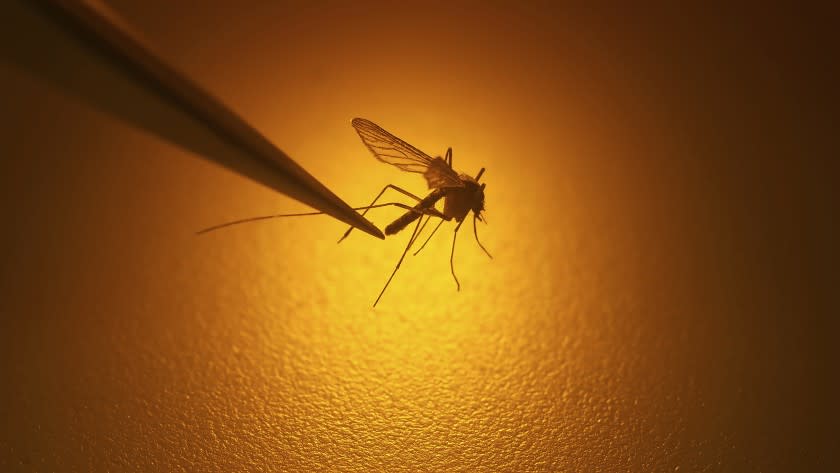L.A. County confirms its first West Nile virus-related death of 2021

Los Angeles County health officials have reported the county's first death this year due to West Nile virus.
The patient, a resident of the eastern region of the county, was hospitalized and died from a neuro-invasive disease associated with the virus, officials announced Friday. No further information was given about the individual or the date of death.
County officials have documented a total of 10 cases in the county so far this year, excluding Long Beach and Pasadena, which have their own health departments. The state reported its first West Nile virus-related death in July in San Luis Obispo County.
The mosquito-borne virus is common in California in summer and early fall. Most people who become infected don’t experience symptoms, according to the Centers for Disease Control and Prevention, but some may experience fever, muscle aches and tiredness. In severe cases of infection, especially in people over 50 years old and those with chronic medical conditions such as cancer and diabetes, the virus can affect the brain and spinal cord, causing meningitis, encephalitis and paralysis.
Last year, there were seven deaths attributed to West Nile in L.A. County.
There is no treatment or vaccine for West Nile virus. Public health officials recommend using insect repellant or lemon eucalyptus oil, wearing long pants and long-sleeved shirts when outdoors, and clearing out standing water from places that might attract mosquitoes like flowerpots or buckets.
This story originally appeared in Los Angeles Times.

